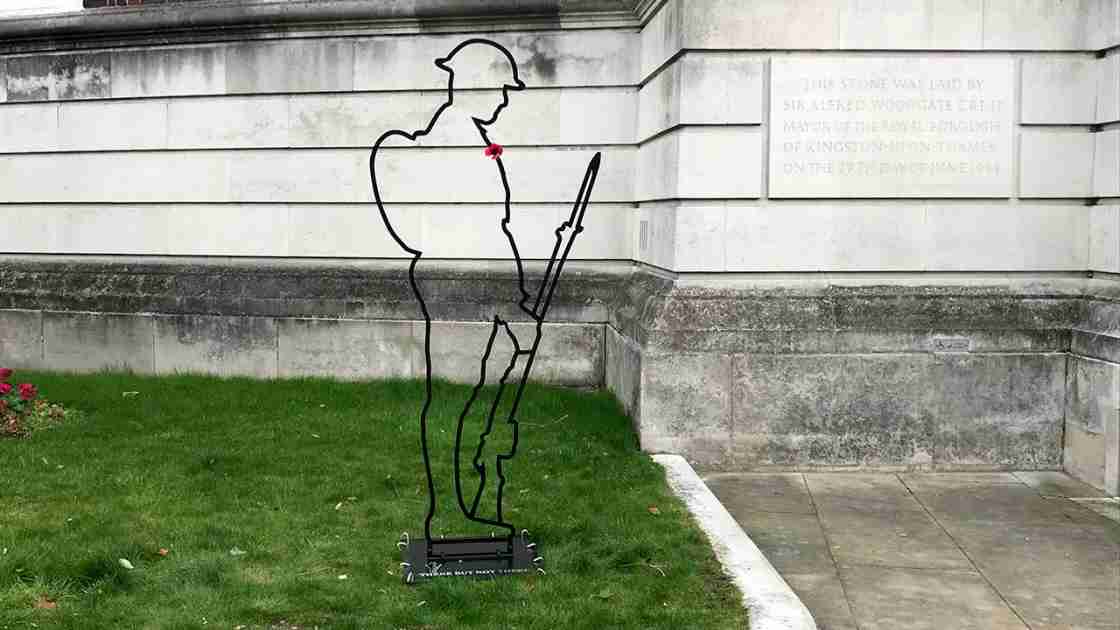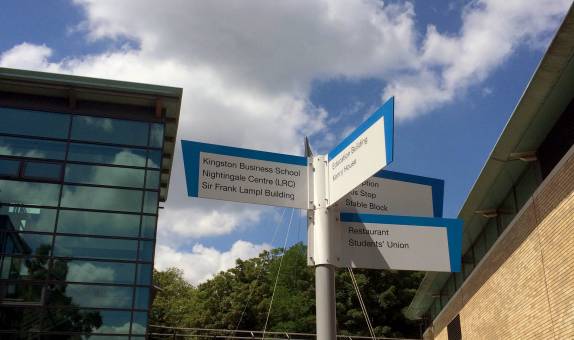Armistice Day

Kingston University commemorates 100 years since Armistice
On the eleventh hour of the eleventh day of the eleventh month 100 years ago the armistice was signed between the allied forces and Germany signifying the end of the First World War. The bells of peace rang out across Europe, marking the conclusion of a horrific four-year conflict that saw millions of lives lost across Europe.
Each year on the eleventh of November people commemorate those lives, wearing poppies as a lasting symbol of those who gave their lives then and in war since, and taking a moment to remember. Here we discuss how our culture and lives have been irrevocably shaped by the Great War, 1914–1918.
Flight in the First World War: Kingston Aviation Centenary project
The First World War saw huge advances in avionic technology and Kingston's aircraft industry played a vital part in these developments, throughout the conflict and in the years following the Armistice.
David Hassard, joint leader of the Kingston Aviation Centenary project, explains the impact of the conflict on the town and the engineering legacy it left in its wake.
The importance of VADs in the First World War
Kingston history academic Dr Sue Hawkins worked closely with the Red Cross and over 800 volunteers to digitalise the record cards of the Voluntary Aid Detatchments – a group of people about whom, until recently, very little was known. This project has helped bring the stories of these volunteers back to life and uncovered forgotten family histories. During the project, records of some household names were uncovered – it has been suggested that Agatha Christie's role as a pharmaceutical clerk, for example, may have been where she acquired her knowledge of poisons used for victims in her stories. Without this effort at the home front, the soldiers in Europe would not have been able to do their job at the front, so it is important to remember the type of work that was carried out by these volunteers.
For more information, contact Dr Sue Hawkins.
The impact of war artists on the portrayal of World War One
Dr Jonathan Black, specialist in British art, culture and society and the First World War discusses the impact of the Great War on artwork and how our image of war has been shaped by these artists.
The importance of commemorating World War One
Dr Jeremy Nuttall, History academic and specialist in twentieth-century British politics, culture, ideas and psychologies discusses the lasting impact of World War One on British society, culture, politics, government and the importance of commemoration on Armistice Day.
One hundred years ago, on the eleventh hour of the eleventh day of the eleventh month of 1918, an Armistice came into force which brought to an end four long years of bloody and exhausting warfare. The conflict had been truly global in nature and far-reaching in its impact at national and local level, including Kingston upon Thames. Why should we remember the tragic events of World War One, a brutal struggle between nations that happened so long ago?
Dr Steven Woodbridge, Senior Lecturer in History





